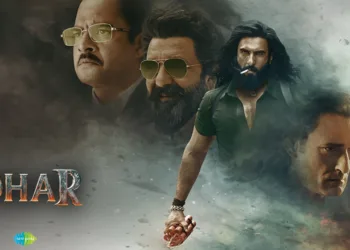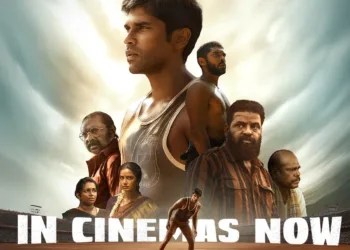On April 23, the Supreme Court of India convened to hear vital observations concerning the draft constitution of the All India Football Federation (AIFF). The courtroom was focused on the insights offered by Amicus Curiae Samar Bansal, who was appointed by the court to provide independent expertise on the matter.

The hearing, presided over by Justices PS Narasimha and Joymalya Bagchi, reviewed a number of critical aspects surrounding the proposed changes to AIFF’s framework. As developments unfolded, the urgency of conducting fresh elections under the restructured constitution emerged as a central theme. The hearing will continue on April 24, with the final arguments from the Union of India’s representative expected to follow.
Table of Contents
Role of the Amicus Curiae in the Proceedings
Mr. Samar Bansal, serving as the Amicus Curiae, held a pivotal role during the session. His responsibility, as defined by the court, was to provide clarity, expert guidance, and non-partisan viewpoints on the complex legal and procedural matters of the AIFF constitution overhaul. He assessed several topics — from leadership tenures to the legitimacy of foreign intervention in the sport’s governance in India.
Highlights of the Amicus Observations
During his detailed submission, Mr. Bansal addressed various segments of the revised constitution. These included:

- Term Limits for Office Bearers: He commented on the importance of clearly defined leadership durations to promote accountability and prevent stagnation within the federation’s administrative structure.
- Promotion-Relegation System: Bansal offered a viewpoint on competitive integrity, urging that the framework should be robust enough to accommodate upward and downward movement based on performance.
- Marketing Rights Agreement (MRA): He provided insights into the structure and implications of the existing MRA, likely referring to the long-term commercial rights contract that has historically been a point of debate.
- Football Sports Development Limited (FSDL): The relationship between AIFF and its commercial partner, FSDL, was scrutinized for clarity and governance compatibility under the revised statutes.
Critique of the FIFA Normalisation Committee Concept
A significant portion of Bansal’s observations centered around the potential involvement of FIFA’s normalisation committee. He raised concerns about external influence over Indian football governance. Asserting that the committee was only suited for extraordinary conditions, he noted, “That’s a foreign body. I’m not in favour of bringing them in, because they are adequately obnoxious.”
His strong language reflected the unease many in Indian football circles have expressed over external regulatory control.
Supreme Court Suggests Immediate Elections Post-Constitution Adoption
One of the defining moments of the session came when the bench indicated that elections should promptly follow the ratification of the new constitution. The court conveyed this in a pointed observation: “Once it (draft constitution) is put in, let me be, direct what they have done for BCCI, ask somebody, whichever way, whichever manner, that the election must take place. Once the fix is in place.”

This signals the judiciary’s preference for expeditious administrative transition, echoing its prior stance in other sports governance cases such as the Board of Control for Cricket in India (BCCI) matter.
What Lies Ahead: Final Arguments on April 24
With the amicus input now part of the record, the bench is set to resume deliberations on April 24 at 3 PM. The concluding argument will be delivered by the Additional Solicitor General of India, Mr. KM Nataraj, who represents the Union government in this matter. His submissions are expected to provide the government’s stance on the structural reforms and may help determine the timeline for implementation.
Read More: Inter Kashi Edge Bengaluru FC in Thrilling Kalinga Super Cup Shootout
FAQs
What was the focus of the Supreme Court hearing on April 23 regarding AIFF?
The hearing focused on Amicus Curiae Samar Bansal’s observations on the AIFF draft constitution, covering governance, elections, and administrative reforms.
Who is Samar Bansal and what role did he play in the AIFF case?
Samar Bansal is the court-appointed Amicus Curiae tasked with offering legal insight and expert analysis on the AIFF draft constitution to aid the Supreme Court’s decision-making.
What did Samar Bansal say about FIFA’s normalisation committee?
Bansal strongly opposed involving FIFA’s normalisation committee, stating, “That’s a foreign body. I’m not in favour of bringing them in, because they are adequately obnoxious.”
What did the Supreme Court say about AIFF elections?
The court indicated that fresh elections should be held immediately after the new AIFF constitution is approved and enforced.
When will the next hearing on the AIFF draft constitution take place?
The Supreme Court will continue hearing the final arguments on April 24 at 3 PM, with the Union of India represented by Additional Solicitor General KM Nataraj.








